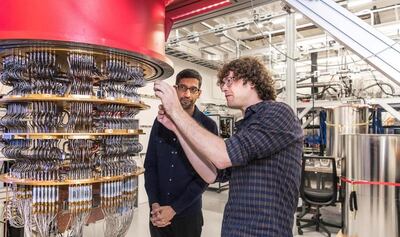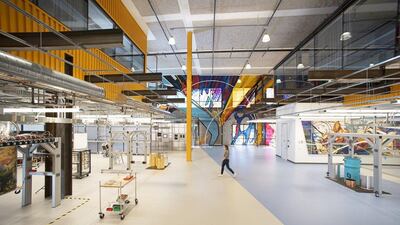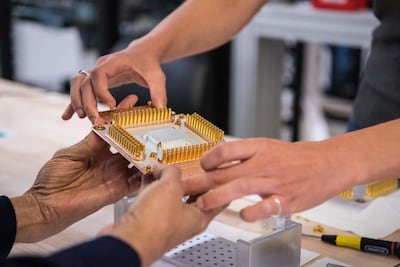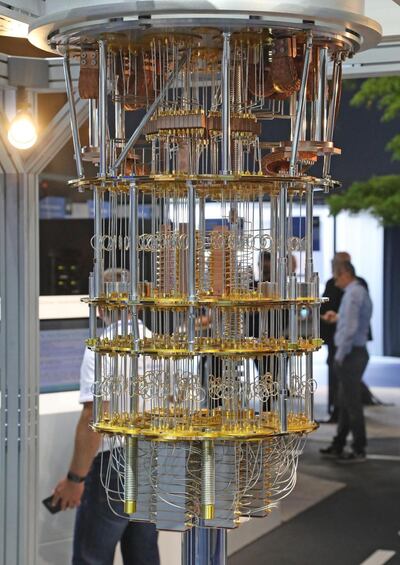Google aims to build a commercial-grade quantum computer by 2029 that can perform error-free complex calculations in tiny fractions of a second, the company said.
The company's chief executive Sundar Pichai announced the timeline and introduced the new Google Quantum AI campus in Santa Barbara, California, at the company's virtual annual developer conference on Tuesday.
“Quantum computing represents a fundamental shift, because it harnesses the properties of quantum mechanics and gives us the best chance of understanding the natural world,” Mr Pichai said.
Quantum computers represent a massive acceleration in computing speed and performance.
The California-based company’s quantum computer will be more than 100 million times faster than any conventional computer. It will accelerate solutions for some of the world’s most pressing problems, like sustainable energy, greenhouse gas emissions, and unlock new scientific discoveries, like more helpful artificial intelligence.

"As we look 10 years into the future, many of the greatest global challenges, from climate change to handling the next pandemic, demand a new kind of computing," Erik Lucero, lead engineer, Google quantum AI, said.
Such new innovation can “build better batteries … create fertiliser to feed the world without creating 2 per cent of global carbon emissions [as nitrogen fixation does today] … create more targeted medicines to stop the next pandemic before it starts, [as] we need to understand and design molecules better,” he added.
The world's biggest economies, from the US, Russia, China and Japan, as well as tech titans IBM, Alibaba, Google and Microsoft, are all battling for supremacy in the field. Companies such as Visa, JPMorgan and Volkswagen are also experimenting with early-stage quantum technology.
In late 2019, Google announced it had achieved “quantum supremacy”.
This means that its quantum computer became the first to solve a calculation in less than four minutes that would have taken the world’s most powerful supercomputer 10,000 years to complete.

In March, the UAE capital Abu Dhabi said it will build its own quantum computer, the first in the country, which will be able to process information at much faster speeds than classic technology. The emirate is building it in collaboration with Barcelona-based Qilimanjaro Quantum Tech.
Following this, Abu Dhabi also opened a software library to store algorithms to counter cyber threats related to the quantum computers.
Using quantum computers, Google intends to simulate “nature accurately”.
“You can’t simulate molecules very well using classical computers. As you get to even modestly sized molecules, you quickly run out of computing resources,” said Mr Lucero.
“With an error-corrected quantum computer, we will be able to simulate how molecules behave and interact, so we can test and invent new chemical processes and new materials before investing in costly real-life prototypes.”
Today’s computers function using binary units called bits, which are arranged in a combination of ones and zeroes. Everything we see on a computer screen is made from a combination of these ones and zeroes.
But this binary system can be very limiting, experts said. This system can be used to reflect basic information and calculations, but it cannot solve complicated problems.
Even the world’s largest supercomputer would eventually run out of space trying to choose the best solution to a problem with many options.
This is where quantum computers come in. They use quantum bits, or qubits, which can be entangled in a complex superposition of states, naturally mirroring the complexity of molecules in the real world, said Mr Lucero.
“We are on a journey to build 1 million physical qubits that work in concert inside a room-sized error-corrected quantum computer. That’s a big leap from today’s modestly-sized systems of fewer than 100 qubits,” he said.




